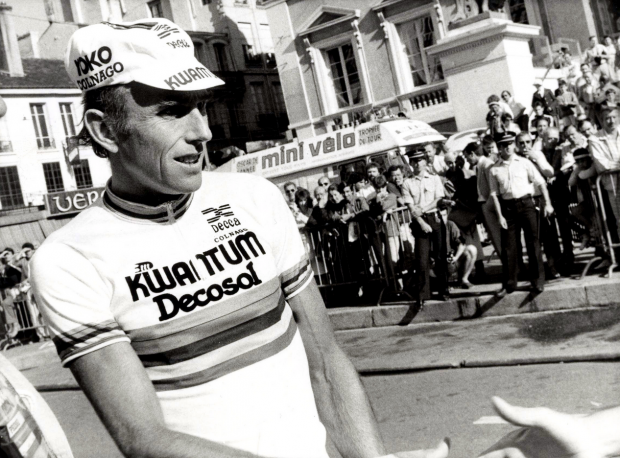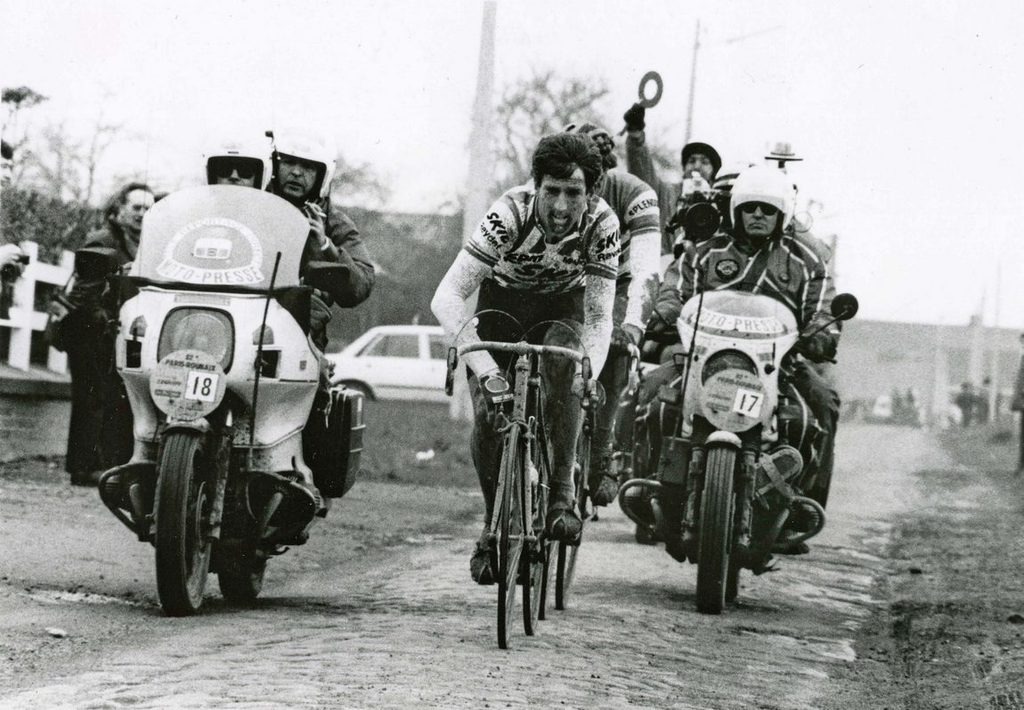The Eternal Seconds: Heroes or Villians?

Joop Zoetemelk was a hard man, a tough nut to crack. He specialized in getting second place, a talent he developed under the doctrine of Eddy Merckx and mastered via the harsh tutelage of Bernard Hinault. It’s very seductive to lean back in our armchairs and draw the conclusion that our sport’s Eternal Seconds, as they’re called, are the weaker men than their rivals. The sport is filled with this familiar story; a rider comes up and is hailed as perhaps the next great rider, only to have synchronized their career with a more dominant rider.
Poulidor, who started with Anquetil and finished with Merckx. Zoetemelk, who started with Merckx and finished with Hinault. Then EPO entered the peloton and the balances were set off for a bit as riders who shouldn’t have been at the top were popping in for table scraps before Ullrich took the helm by getting on the podium in the Tour more often than any champion before him had won the Tour. Like Chimera and Bellerophon, every great hero needs a villain and it seems these riders are always there to stand up and fight year after year, against all odds.
In keeping with the Chimera and Bellerophon metaphor, I’m not so sure it is the victor who is the hero and the loser the villain. In my ski racing days, I was at the top of my game – I even had one season where I was undefeated throughout. That season was, without hesitation, my least rewarding season; winning became a question of margin – I even won one time trial where I started last and caught up to each of my teammates in serial and paced them to the next teammate such that we all finished in a big line of eight skiers.
The most rewarding season was the year where I struggled to fight back after losing motivation (due to the previous season’s excess) and still managed to win the key events. But the real fun wasn’t so much in the winning or losing, but in the bond it built between me and my principal rival; we both fought to the point of blacking out and neither of us ever – even for a minute – relented.
Extrapolating from that small-world experience to what it takes to become a Pro Cyclist capable of wining the Tour de France, it gives some insight into the mentality of the athletes who play out these battles that figure so prominently in our interpretation of our sport. To that end, I wonder if the champions don’t have the psychologically easier side of the coin. After all, they suffer almost the same amount, endure almost the same pressures and endure almost the same amount of discipline and sacrifice in pursuit of their goals. But one has the reward of victory and one the indignity of loss.
To come back year after year as victor seems almost like a picnic in comparison to the brutality of coming back year after year only to lose once again – then to resolve to return undeterred. In this sense, the loser who refused to quit endurs the suffering and sacrifice without the glory that comes with winning. Without them and their unrelenting optimism, the story would be less bright, less colorful. Which is the hero in our story?


@ChrisO
Nice one.
A famous Dutch writer once said that writing is striking; so true – you write and then you start chopping out all the extra shit you don’t need – which can be a painful thing to do when you’re cutting bits of phrasing that you fell in love with but which don’t offer any value to the piece…
Fast Freddy Maertens- this doesn’t really belong here but it’s worth looking at. This site is great but his link to a Belgian beer is beauty. Not Malteni but good. Check out Freddy and the B+B video. Beautiful work here.
http://www.flandriacafe.com/2012/09/waar-is-freddy.html
@ChrisO
Well played. I think of King Kelly whenever I think of a number in the 30s.
@Gianni
I’m not sure the youngsters really appreciated the fact that they were being attended to by one of the disciples. Kinda sad to see Freddy reduced to this, but I guess he wasn’t too smart with his “investments” after he retired . . .
@wiscot Bless Freddy, he was a champagne drinking playboy. No thought for his 401k. Still, I love him sitting in the cement mixer/ B+B, 2 feet behind that couple, blowing the horn. It amuses us simple folk.
@frank
Very slow to react to this, I’m aware – sorry (way too busy at work) – but thanks! I have this friend who I do a lot of work for (a Brit, married to a Danish VMH, who lives in Portugal – go figure…) – who is seriously considering getting back into road cycling – and I’ve been badgering him (see what I did there?) to get a copy of the EN version of “de Renner”. The guy in question works in the translating business – like myself – and he’s a bit of a ‘purist’, so he’s usually leary of translated litterature. I’ll now inform him that I have it from a very reliable source that the English translation is spot on. Cheers. (I cannot believe that I can’t find my Dutch copy, though – I actually should have TWO floating about the house somewhere. Tell you what: if both should re-appear at some point, I’ll send you one of them…)